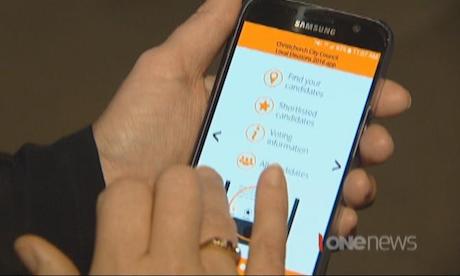Social media is a lazy and ineffective way for politicians to communicate with voters says Tino Mahowa, a student at St Bernard’s College in Lower Hutt.
“If any politician were to use social media as a way to communicate, it would be to their detriment. It’s a terrible means of conveying detailed information.”
“Candidates could talk to us and introduce themselves. It’s not hard to say, ‘this is me, this is what I stand for’.”
This contradicts the popular view that social media is crucial if politician are to engage with younger voters.
Another student, Steven Pereira, 18, said, “They need to make themselves more known to give us an idea of who they are. They need to talk to young people so they know they actually exist.”
Jack Peratiaki, 18, said politics and voting was not widely discussed among his mates. He thought a lack of information about the electoral system in conjunction with little exposure to politicians meant many young people felt out of their depth when it came time to cast their ballot papers.
“They just expect us to know what to do.They should come and talk to us instead of relying on parents to tell us [what to do].”
Although New Zealand enjoys a strong overall enrolled voter turnout among young people (aged 18 to 24) is proportionately much lower than all other age groups.
In May Stuff reported that in the 2014 election, just 75 percent of eligible voters aged 18 to 24 enrolled to vote and one third of those did not vote at all.
In an opinion piece on Stuff last month Cas Carter pointed out that “In what they’re calling ”the youth quake,” the Labour Party managed to change the prevailing view of the long-time disaffected young demographic and showed them their vote could make a difference.”
Source
Additional readingNews category: New Zealand.




